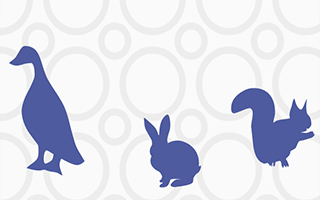In 1940, George Reavis, the superintendent of Cincinnati schools, was involved with the challenges of teaching children with disabilities. As a result, he authored a fable called “The Animal School.” With the fable, Mr. Reavis made the point that it wasn’t the child but the educational system that was disabled by using a one-dimensional approach to all children. Since that fable was publicized 73 years ago, management experts (including Yours Truly) have used its lesson to point out that not all employees can be taught to perform well at all jobs.
The Animal School fable is the story of different species deciding that they could help the ills of the world by educating all animals. To accomplish their schooling, they constructed a curriculum that included skill-sets commonly employed in the animal kingdom, such as swimming, climbing, running and flying, among others. The animals tried a universal approach to all animals for all skill-sets. The Duck got straight As in flying but poor grades in tree-climbing. Similarly, the fish scored well with swimming but failed badly at running. The result? All of the animals experienced failure in most of the skill-sets being taught. After all, they were only ducks, fish and squirrels. They were well equipped to excel in the areas that their inborn physical abilities made natural, but not equipped to meet proficiency levels for all of the school’s requirements. Their failures at non-natural skills had such a negative impact psychologically that it inhibited their normal abilities. Ducks lacked the confidence to even get off the ground!
So what’s the message here, and how does it apply to tanning salon staff? The point is that those working behind and in front of our salon counter need specific skill-sets: ducks can fly, squirrels cannot… unless they have a jet-pack (remember Rocky & Bullwinkle?). The great salespeople we want (for illustrational purposes, let’s call them ducks) can fly and fly well. Too often we hire squirrels and hope to turn them into ducks. However, those squirrels often drain off the efforts of your other performers.
The Gallop organization wrote one of my favorite business books back in 1999, titled “First, Break All The Rules: What the World’s Greatest Managers Do Differently.” Their research (Gallop is famous for its polling and research capabilities) shows clearly that everyone has skills, knowledge and talents. Gallop defines talent as actions and attitudes that occur naturally in people. Michael Jordan, for example, was born with many natural capabilities or talents that were enhanced with training, coaching and opportunity.
Hiring a person who does not thrill you with a selling personality or who does not show an innate capability to collaborate with other people in the interview, is a waste of your time and HR investment. Similarly, retaining someone who can’t soar at selling is not only a waste of time but may well negate some of the capabilities of the flock.
Before we get too far into the fall, take an inventory of your zoo… are they ducks or squirrels?

